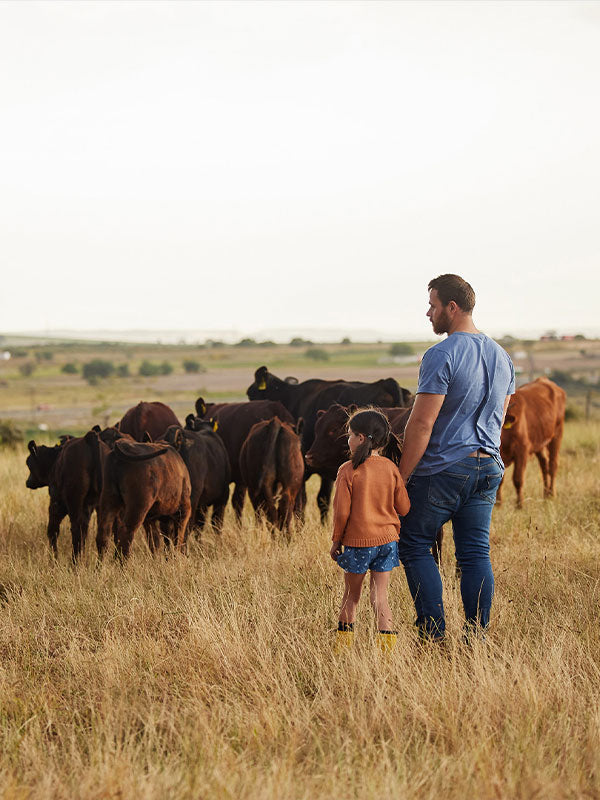
Contact Us
If you have any questions or require our assistance, please complete the contact form below.
Contact form
FAQ
What is the difference between Federal and Provincial suppliers?
The difference between federal and provincial inspection levels is one of scale and scope. Provincially licensed abattoirs can sell meat only within Ontario’s borders. Only facilities that are federally licensed(Rowe Beef)can export meat to other provinces and countries.
What is the CFIA?
The Canadian Food Inspection Agency
The CFIA enforces federal food safety regulations for both domestic and imported food. Even in a modern, effective food safety system such as Canada’s, risks cannot become completely eliminated. We are in constant communication with the CFIA and have an inspector on site at our location who performs random inspections and audits for Hazards like pesticides, bacteria and E.coli. This is a by-product of being a federally inspected purveyor.
What is HACCP?
Hazard Analysis Critical Control Point
HACCP is a food safety system designed to identify and control hazards * that may occur in the food production process. The HACCP approach focuses on preventing potential problems that are critical to food safety known as ‘critical control points’ (CCP) through monitoring and controlling each step of the process.
What is SQF?
Safe Quality Foods
In addition, there are standards for food quality, the manufacture of food packaging, storage and distribution of food, and others. The organization that manages this food standard is the Safe Quality Foods Institute (SQFI). The SQF Program will guide you through the process of setting up a comprehensive food safety management system on your farm, in your warehouse or facility – and then check your work by examining your processes with an annual audit. All audits are conducted through the SQFI Audit Database. At Rowe Beef we are SQF certified since day one.
What is Halal?
Halal food is that which adheres to Islamic law, as defined in the Koran. The Islamic form of slaughtering animals or poultry, dhabiha, involves killing through a cut to the jugular vein, carotid artery and windpipe. Animals must be alive and healthy at the time of slaughter and all blood is drained from the carcass.
Is Rowe Beef Halal Certified?
In 2015, we took our dedication to quality one step further by becoming fully Halal Certified by the Islamic Food and Nutrition Council of Canada. This certification ensures that our Halal Poultry, Lamb, and Beef are produced in compliance with the strict standards set forth by IFANCC, in our Federally Inspected and HACCP-certified facility. We are proud to offer this certification as a testament to our commitment to catering to the diverse dietary needs and preferences of our customers.
How Long Does Rowe Beef Age Beef For?
We wet–age our beef 4-8 weeks, depending on the need and specifications of the partners.
What Is Wet Aging?
Wet-aging is essentially the opposite of the open-air process of dry-aging beef. This method of perfecting a cut of beef before cooking involves storing the beef in a Cryovac bag. From there, the meat is stored in a refrigerator for 14 days or longer at around 35 degrees Fahrenheit.
What Is Dry Aging?
In essence, dry aging is when you take a piece of meat and put it into a controlled open-air environment to go through a flavour transformation. By exposing the meat to air, moisture is pulled out and the natural enzymes in the beef break the muscles down slowly over time, making it more tender.
Why Dry Age Meat?
Dry aging is the process by which large cuts of beef are aged for anywhere from several weeks to several months before being trimmed and cut into steaks. It’s a process that not only helps the steak develop flavour, but also makes it far more tender than it would be completely fresh.
What Cuts Of Meat Are Best For Dry Aging?
Most butchers typically age full or sub-primal’s for the best effect. Some of the commonly dry aged cuts include strip loin (New York Strip), boneless ribeye (ribeye) and top butt (sirloin). These are steak cuts that age well and improve significantly in flavour and texture with dry aging.
Free Range vs Free Run Chickens?
Free run chickens, roam the entire barn and are limited to just the inside. Some of these barns may be equipped with multi-tiered aviaries. Free range allows the chickens roam the barn floor and when weather permits, go outside to pasture as well.We offer both options at Rowe Beef.
Air Chilled vs Water Chilled Chicken?
The water in water-chilled chicken evaporates as it cooks, creating shrunken, rubbery chicken, especially when it’s grilled or barbecued. Further, air-chilled chicken cooks faster, absorbs marinades and seasonings much better, and has a crispier skin after cooking, Air-chilled chicken cooks better. At Rowe Beef, we only use air-chilled chicken.
Does Rowe Beef Offer Grass-Fed Products?
es,we have a full line of grass-fed product through our partner Top Grass out of Calgary.